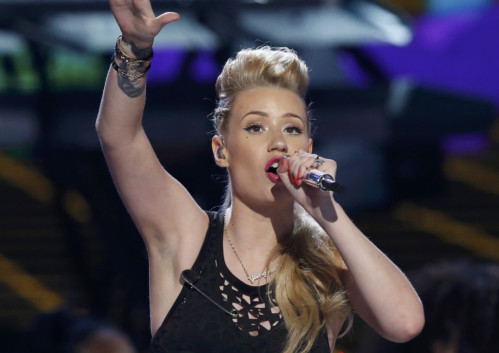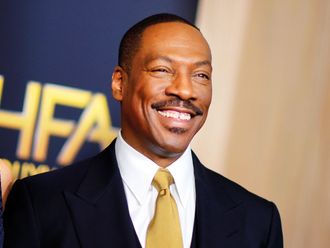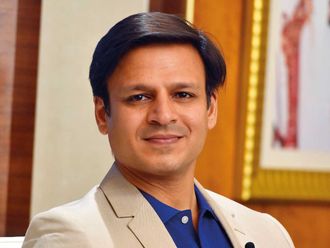
It’s never a good sign when they tell you the boyfriend will be sitting in on the interview. I explain that a 7ft (2.1 metres) basketball player on the sofa might affect Iggy Azalea’s answers; that you talk differently in front of your other half; that she may have held the No 1 and No 2 slots at the same time on the Billboard Hot 100 chart in May, but that hardly qualifies her for a permanent henchman. “There’s really nowhere else for him to wait,” they keep saying, troubled, consulting their ear pieces. We are at Wembley stadium.
It’s funny how fast fame gobbles you up. I first met Azalea in February 2013. She was 22, and though her tracks had millions of YouTube views, she wasn’t yet signed. She was admired for her retro US southern-style flow, twisted vowels and filthy humour but no one had quite decided whether she was the real deal. Azalea behaved like a star and understood the pulling power of a glossy video — such as Murda Bizness, where she performed alongside tots in a beauty pageant.
I expected her to be frosty, to give me the cold shoulder when I asked her if people took her seriously, a white rapper from small-town Australia. What I got was a breathlessly enthusiastic kid, like a teenage boy, who compared her ambitions to wanting to be an astronaut, and steamed through production terms. All in all, she was refreshingly uncool.
The last 12 months have brought colossal successes: a deal with Island Def Jam, a modelling contract and a tour with Beyonce. Azalea guested on J-Lo’s album AKA and even performed the infamous Blurred Lines with Robin Thicke while Fancy (the No1 single from her album The New Classic) is, they say, the feel-good song of the summer. But the controversies surrounding her from the start have escalated. Rapper Azealia Banks said she was racist. The internet fizzes with blogs accusing her of “minstrelsy” pretending to be black — or else just being a plain old copyist with no new ideas. She’s had so much flak, in fact, you can understand why she might want the boyfriend on hand.
Nick Young of the LA Lakers is a big quiet chap sitting in the corner, wearing ear-buds and picking at a rice pudding. “He can’t hang outside because it would make him go crazy!” Azalea says pleadingly, and she’s got a point: Wembley is hosting Capital FM’s Summertime Ball: out in the corridor, 12 oiled dancers, belonging to Jessie J or Little Mix, are doing their squat thrusts. We have a manager, manicurist and caterers in attendance. Azalea is wearing a pair of heavy men’s flip-flops, the kind you see in the bath houses of former communist countries. She is distracted and speaks more slowly, more economically than she did last year. We pick up the story where we left off.
“You know the funny thing is,” she says, one hand in a portable nail-dryer, “I have never had any musicians tell me that I wasn’t authentic for being white and Australian. Not one. Even I had a warped perception of how I would be received in this business. What I’ve come to realise is that it’s the people who write about music — or who are outside it in some way — who have a problem with what I am doing. The only true insiders are the musicians themselves.”
Born Amethyst Kelly in Mullumbimby, New South Wales, Azalea left home aged 16 and flew to Miami alone; she planned to enrol on an audio engineering course if the rap dreams didn’t work out. “I had always been drawn to jobs where there weren’t many other women involved,” she says, “and very few women do audio engineering.”
Powerful mentors
Since then, she has always had powerful mentors. Her hand is tattooed with the title (Live. Love. A$AP) of a mixtape by her ex-boyfriend, Harlem rapper A$AP Rocky (although his name has now been crossed out). Other early supporters were Nas and Kanye West, whom she name-dropped fiercely when we last met. She’d been listening to West’s latest lyrics at his house and was inspired by an idiotic rhyme about McDonald’s which, she felt, exploited the line between art and ignorance — a grand and rather Gaga-ish concept which informed the name of her debut release, Ignorant Art. Did Kanye warn her she’d have her work cut out defending herself in the industry?
“It would have been hard for him to fathom that anyone would want to have such a conversation with me,” she says. “He is embedded in this world, he is not looking in on it from the outside. You know, I just read the Keith Richards autobiography and I thought it was so interesting when he pointed out that no American blues musicians ever accused the Rolling Stones of “imitating” their sound — but people were writing that stuff about them back in England.”
She doesn’t see Kanye any more. A few months ago she was buying a rotisserie chicken when she caught sight of a gossip magazine with Kim Kardashian on the cover, heartbroken over Kanye’s “new girlfriend”. She flicked through and saw herself. Reports spoke of the listening sessions at his home, “neglecting to mention there were a dozen other people in the room,” she says. “Our paths will hopefully cross again at some point.”
Another big scandal came when Azealia Banks, fellow rapper and renowned Twitter-beef merchant, accused her of being racist. To recap, in early 2012 the pair had an unfortunate career clash — same name, same age, same attitude, similarly provocative songs. After Azalea landed the cover of the hip-hop periodical XXL, Banks tweeted: “How can you endorse a white woman who calls herself a runaway slave master?” (a lyric from the track D.R.U.G.S). Iggy countered: “Don’t even bother including my @ name in any of your salty thoughts cause I’m #blockinthata** today!!!” but then issued an official apology for the lyric, which probably didn’t help her case.
“Getting the word racist put on me sucked,” she says. “And it’s hurtful for other people to have to hear it [she nods in the direction of the boyfriend, who is buttering a crumpet]. And it is hurtful for other people’s families to have to hear it. I think people seriously need to rethink that word. We are very liberal in flinging it around and it is pretty [expletive] heavy.”
I remind her that Lorde was accused of racism for lines in her colossal hit Royals last year.
“Yes, I didn’t know Lorde was a big old racist,” she says. “Me, I’ve been called everything but it kind of irks me to think that they said that about a 17-year-old. Don’t say that about a kid! You cannot erase those things, they are there forever.”
“I also think it is a generational thing, a misunderstanding,” she continues. “When I think of Royals — “gold chains, diamonds on your timepiece” — I think about Tumblr kids. She was talking about the aesthetic of Tumblr. The people writing the music see it one way, the consumers see it another. And anyway, is rap really that much of a stereotype? To say that rap is a guy in chains and baggy pants popping bottles in a club is stereotyping black culture. That has never been my aesthetic. I’m not wearing chains and big hoop earrings. I love the fact that I don’t rap the way I talk — I think it’s completely hilarious and ironic and cool. Didn’t I just recreate Clueless in my video [Fancy], the whitest thing of all time?”
Around the time of the Banks controversy a promised record deal with Interscope dematerialised. I ask her if she felt this was the last straw and she says: “Yes, but s*** creek branches off eventually.” (She signed to Island Def Jam in April last year.) But these dramas fuel the narratives of struggle and fight expected of her chosen genre and though that struggle sometimes sounds rather exciting (“No money, no family, [age] 16 in the middle of Miami”), it’s fair to say that a solo, transcontinental teenage relocation was a bit of an upheaval. “No, I didn’t just walk into hip-hop clubs and introduce myself to rappers!” (She moved to Atlanta from Miami, and then to Houston.)
Very cautious
“I was very cautious because I felt freaked out. I only knew people that lived in my neighbourhood. I wasn’t walking around meeting randoms!” And while she may be of a generation whose parents clap their hands in joy when kids announce they want to be pop stars (her mother, a cleaner turned estate agent, paid for her first recording session), family troubles speeded up the decision to get away from home: there was an unhappy father who left town for a while, leaving a note with Azalea’s teacher explaining why.
She still claims to see no cheques from her record sales, and uses endorsement deals — Levi’s, House of Holland — to finance videos, for which she says she must stump up half the cash. “I rarely see the actual money, I like to put it straight back into the other stuff. I’m still trying to cement myself so it’s really important to me that I have consistency in the quality of the things I put out.”
Her debut album is defensive, compared to her first naughty mix-tapes: “Same critics love me nowadays couldn’t stand me,” she spits on Don’t Need Y’all. Though she keeps popping up on other people’s records, you suspect guest slots are not the ultimate ambition of this solitary individual. These “features”, as they call them, were encouraged by her production team the Invisible Men; and have made her famous “but I never want to do them. I never want to do duets. I don’t think of other people when I’m writing my songs. I have to try and hold my own so much, it does not seem natural to me to ask for help. Sometimes a feature feels like asking for help.”
Her Billboard hits are also two-handers — Problem, with Ariana Grande, and Fancy with Stevenage-born singer Charli XCX. Azalea, who wanted to study audio engineering because there would be no other girls on the course, is now best known for duetting with girls.
“I have no idea how that song with Charli came about,” she says. “I have no idea how she got on it — they decided it would be a good idea and I found out later. I thought, she sounds good, let’s keep her!” Her boyfriend is reading the label on a jar of Marmite. “Don’t eat it, trust me,” she says. “I love Marmite but I have yet to meet an American person who is interested.”
This afternoon, it’s teenagers who turn out to hear Fancy at Wembley stadium. It might not be the audience she’d planned for but for now she’s sandwiched between this and the adult “critical” world.
“For every pseudo-intellectual that’s writing something negative online about me, I’ll go to a show like this and look at the millions of people that are buying the records and think, they are simply not interested in that stuff,” she says.
Does she find it tiresome when young musicians are said to have no new ideas of their own?
“There’s a whole generation that’s made to feel we have nothing to offer musically because it’s all been done before. But even if something is recycled it takes a lot to be witty or ironic. The past is not a hindrance to us. We shouldn’t be racking our brains to find something new just for the sake of it. We shouldn’t be trying to wear plastic knickers, just because it’s the one fabric we don’t tend to make knickers out of.”









